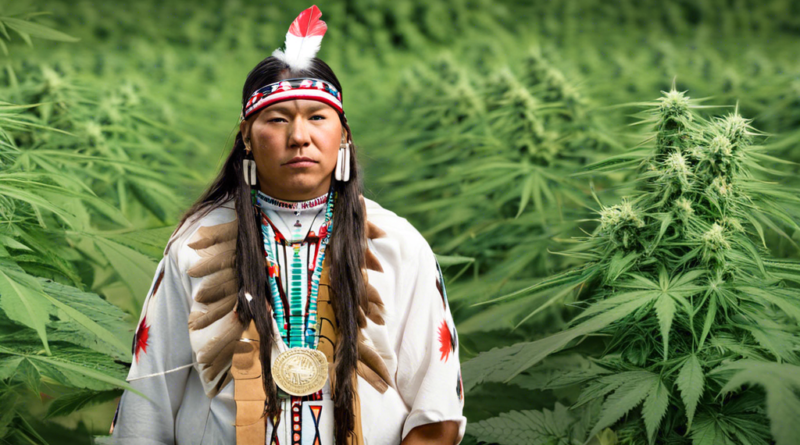The Growing Influence of Native American Tribes in Minnesota’s Cannabis Industry
The involvement of Native American tribes in Minnesota’s emerging cannabis market highlights a significant shift in both economic and regulatory landscapes within the state. As Minnesota gears up for the launch of its regulated cannabis market, tribes are already establishing a foothold in the industry by operating on their own lands with unique regulatory frameworks, indicating a proactive approach to economic development.
The Role of Native American Tribes in Minnesota’s Cannabis Industry
Native American tribes in Minnesota are taking a leading role in the cannabis market by setting up retail programs on tribal lands. This initiative helps bridge the supply gap in the cannabis industry as the state finalizes its regulations for the market. The involvement of tribes such as the Leech Lake Band of Ojibwe, Prairie Island Indian Community, Red Lake Nation, and White Earth Nation illustrates their strategic participation in this burgeoning market sector.
These tribes are leveraging their sovereignty to operate independent of state licensing mandates. For instance, the Prairie Island Indian Community has created its own Cannabis Regulatory Ordinance, signaling a move towards self-regulated cannabis operations. This autonomous approach offers tribes both regulatory freedom and financial opportunity.
Economic Diversification and National Trends
Engagement in the cannabis industry offers a path for economic diversification for Native American tribes, enhancing their financial independence and sustainability. The move is seen as a means to fortify tribal economies against the vulnerabilities of more traditional revenue streams. This initiative reflects a broader, nationwide trend where nearly 60 cannabis retailers are already tribally owned across nine states in the U.S., showing an almost 25% increase in tribal cannabis ventures since 2023.
The Prairie Island Indian Community, for example, is launching Island Peži, a cannabis company with plans to open a dispensary near Minneapolis in Summer 2024. Similarly, the Mille Lacs Band of Ojibwe has commenced the construction of a substantial cannabis cultivation facility, indicating a serious investment in this industry.
Despite the broader legal context, where Minnesota legalized marijuana possession last summer but anticipates that recreational sales will not begin until early 2025, tribal nations are advancing their cannabis businesses. This proactive stance by the tribes demonstrates a blend of entrepreneurship and autonomous governance that capitalizes on the current regulatory environment.
By embracing the cannabis market ahead of full state implementation, Native American tribes not only secure a competitive advantage but also reaffirm their sovereignty and capability to manage and sustain diverse economic ventures. The development of tribal cannabis operations is a promising step toward enhancing economic resilience and independence for Minnesota’s Native American communities.

